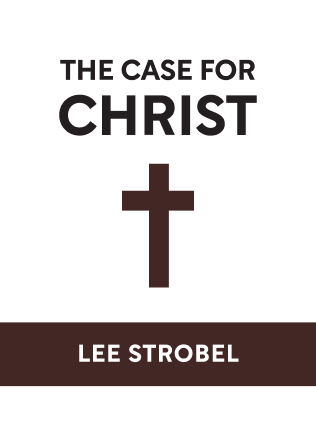

This article is an excerpt from the Shortform summary of "The Case for Christ" by Lee Strobel. Shortform has the world's best summaries of books you should be reading.
Like this article? Sign up for a free trial here .
What is the Old Testament messiah prophecy? Is there any evidence that Jesus is the messiah?
The Old Testament messiah prophecy is a term that refers to the scriptures that predict the coming of a messiah, or child of God. The messiah was to act as a savior of mankind.
Read more about the Old Testament messiah prophecy, and if Jesus fulfills it, below.
Was Jesus the Messiah of the Old Testament Prophecy?
Another way to establish Jesus’s deity, separate and apart from his divine traits, is to compare him with descriptions in the Old Testament Messiah prophecy. Jewish scriptures are full of prophecies about the arrival of the Messiah, an emissary of God who would redeem humanity. These prognostications often feature specific details (so that the Jewish people would recognize the Messiah when he came). If Jesus matches these details, which were articulated generations before Jesus’s birth, there’s good reason to believe Jesus is indeed the Anointed One.
To explore this possibility, Strobel visits Louis Lapides, a pastor at a church in California. Lapides’s path to Christ was a winding one. Raised Jewish in New Jersey, Lapides was drafted and sent to Vietnam, where he began exploring Eastern religions. When he returned home, depressed and rootless, he experimented with drugs and even contemplated suicide.
Eventually, Lapides ended up in California, where he continued to search for a religious path. In 1969, an impromptu encounter with a pastor led to Lapides’s revisiting the Old Testament. The pastor had told him that Jesus was the Jewish Messiah—a figure entirely absent from Lapides’s childhood instruction in Judaism—and gave him a copy of the Bible with both the Old and New Testaments. Lapides began scouring the Old Testament Messiah prophecy.
Soon enough, he found them: in Deuteronomy, which prophesies the coming of a prophet greater than Moses; and in Isaiah, which describes the Messiah as an “oppressed and afflicted” man who dies for the sins of his fellow humans. In the end, Lapides found nearly 50 prophecies in the Old Testament that refer explicitly to Jesus, including:
- The Virgin birth (Isaiah)
- His birthplace of Bethlehem (Micah)
- The manner of his death and his resurrection (Psalms)
After an epiphany he experienced while camping in the Mojave Desert, during which God spoke to him and told him Jesus was the Messiah, Lapides swore off drugs and accepted Jesus into his life. He married a Jewish woman who was also a follower of Christ and joined a church (which, coincidentally, was led by the pastor who’d given him the Bible that sparked his curiosity about Jesus).
Challenges to the Prophecies
Many Jews, like Lapides himself, are simply oblivious to the fact that the prophets of the Old Testament anticipate Jesus’s arrival; once they do the necessary reading—of the Bible and the relevant secondary sources—the facts of the case become undeniable.
That said, there are a number of possible objections to Jesus’s being the Messiah of the Old Testament Messiah prophecy.
Sheer Coincidence
Isn’t it possible that the parallels between Jesus and the Messiah described in the Old Testament are just the product of chance?
The simple answer is no. Mathematician Peter Stoner calculated the odds that a single person would fit even just eight prophecies at one-in-one-hundred-million-billion. The odds of fitting all 48 prophecies of Jesus? One of out of many trillions of trillions.
That is to say, it’s as good as impossible that Jesus matched the Old Testament Messiah prophecy by coincidence.
Retrofitted Gospels
Another challenge to Jesus’s messianism concerns the gospels. Given the fact they were written long after the Old Testament, by authors schooled in Jewish scripture, isn’t it possible the gospel authors simply added details to Jesus’s story to make him match the prophecies?
What this question fails to consider is the timeline of the gospels’ writing and dissemination. As noted earlier, the gospels would have been read by contemporaries of Jesus; if they’d noticed something amiss, they would have objected to it.
There’s an even more compelling rejoinder to this theory. Matthew was put to death for his loyalty to and faith in Jesus. Why would he have sacrificed himself for a lie?
Jesus’s Confidence Game
Like the authors of the gospels, Jesus too was well versed in Jewish Scripture. Couldn’t he just have planned his activities so that they conformed to the Old Testament’s prophecies?
In some cases—for example, concerning the Old Testament Messiah prophecy that the Messiah would ride a donkey into Jerusalem—this argument seems plausible, but in others, it patently fails. For example, how could Jesus arrange that his legs would remain unbroken on the cross? Or that Judas would be offered thirty pieces of silver to betray him? Or the circumstances and place of his own birth? (Daniel 9:24 prophesies that the Messiah would appear a specific amount of time after King Artaxerxes’s decree that the Jews rebuild the walls of Jerusalem. Jesus appeared at that exact moment.)
Bad Interpretation
Not all scholars agree that the passages Christians cite as prophesying Jesus are indeed prophecies. Could Christians simply be misinterpreting the Old Testament?
Lapides simply recommends that skeptics read the passages in question themselves, as he did. He also urges those skeptics to be open to God’s speaking to them—to ask God truly whether Jesus was the Messiah.

———End of Preview———
Like what you just read? Read the rest of the world's best summary of Lee Strobel's "The Case for Christ" at Shortform .
Here's what you'll find in our full The Case for Christ summary :
- How an atheist lawyer-journalist researched Christ and began believing
- The key arguments against the existence of Christ, and why they don't hold up
- How to make up your own mind about whether Christ existed






